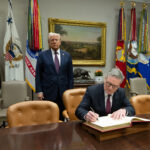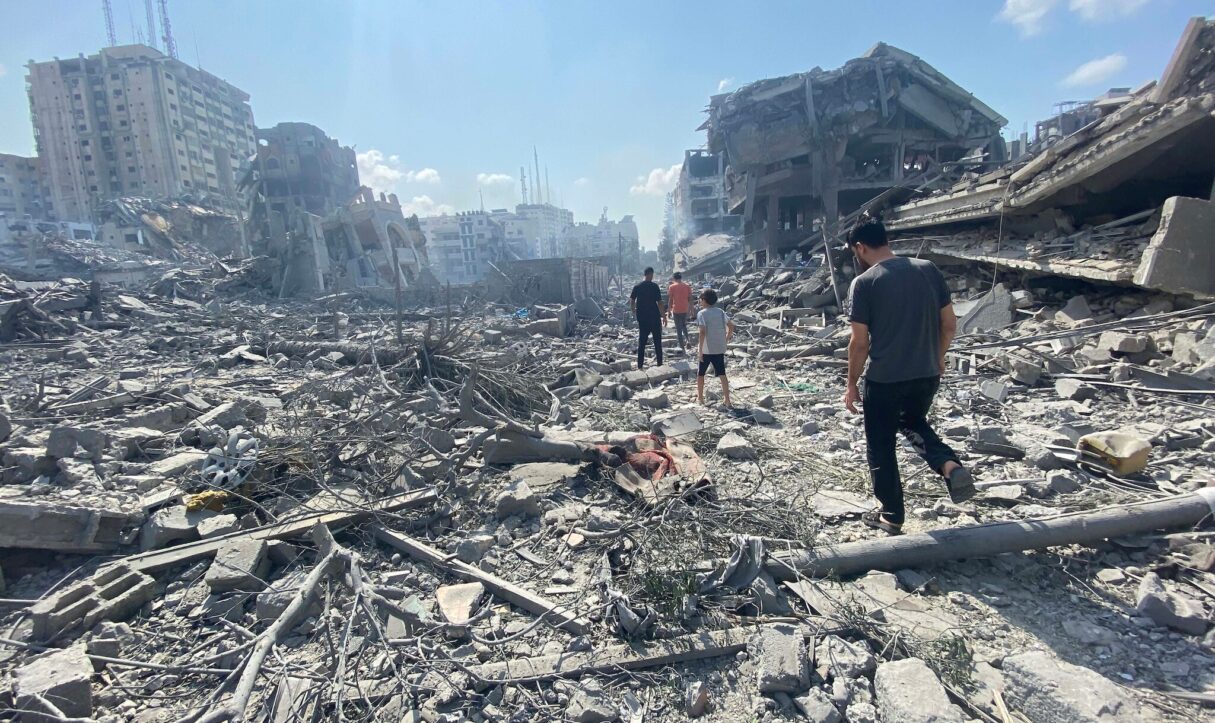Hamas leadership unexpectedly selected Yahya Sinwar as the chairman of its political bureau following the July 31 assassination of previous political head, Ismail Haniyeh, in Tehran. The Aug. 6 decision marks a major moment for the group and the Middle East’s broader geopolitical makeup, largely leaving Hamas in the hands of a hawkish, pro-Iran faction within the group. Such an outcome will likely negatively impact a wide range of pressing questions surrounding the Israel-Palestine conflict, including ongoing Israel-Hamas ceasefire talks, Palestinian reunification negotiations, and any two-state solution as Sinwar opts for a harder line against Tel Aviv.
Yet, Sinwar’s ascent is not necessarily surprising in the current context. Relative moderates within the group, including Haniyeh and Khaled Meshaal, have gradually lost power to the military wing and other hawkish, Iran-aligned actors led by Sinwar. Hamas’s decision to re-engage Syrian President Bashar al-Assad’s government in October 2022 offers one such example after the group sided with the Syrian opposition early in the Syrian war. The political bureau’s lack of full information on the Oct. 7 attacks further highlights these internal dynamics.
Equally important is Sinwar’s presence in Gaza, where the military wing holds power and is directly connected to the Palestinian community. While Hamas Political Bureau figures living in Doha, Istanbul, and Beirut have enjoyed access to foreign capitals — a necessity for the group as it drives foreign relationships in support of their view of the Palestinian cause — it has harmed their ability to dictate the situation on the ground. The group is clearly considering this dynamic in the face of a potential long-term insurgency in Gaza amid a lack of so-called “day after” plans as Israeli military operations shift.
Ceasefire Talks at Risk?
As such, the decision to choose Sinwar as political head suggests the group is not only prepared for such an insurrection but could be welcoming one in a challenge to Israel. This bodes poorly for multiple active diplomatic tracks aimed at easing the suffering of Gazans and achieving some progress on broader Israel-Palestine peace.
Ceasefire talks face the most immediate threat. Hamas rejected another round of talks in Doha to finalize any such agreement, arguing that it had already agreed to a US-backed United Nations Security Council resolution outlining a ceasefire deal. Further, while some reports suggest the military wing in Gaza is fracturing around support for a ceasefire versus continued fighting, Sinwar’s total control of the group and risk-tolerant views suggest a higher likelihood that Hamas plays hardball in future negotiations. Difficulties communicating with him in Gaza only complicate these dynamics.
Indeed, Sinwar may believe that Israel’s strategic defeat in Gaza will win his group and the broader Palestinian national movement more wins than any vaguely defined calm. Israeli Prime Minister Benjamin Netanyahu has thus fallen into a classic trap employed by militant and terrorist groups, indiscriminately annihilating Gaza and its people at the expense of Israel’s global standing and national unity. For Sinwar and his hawkish camp, Palestinian lives are worth sacrificing for their vision of a future state of Palestine, both in terms of the reputational harm caused to Israel and the inherent rage it whips up among Palestinians, Arabs across the region, and Muslims more broadly.
Chances of Miscalculations
Whether this suggests Sinwar is also goading the region into a disastrous war remains to be seen. Regardless, another direct result of Sinwar’s rise is an increased risk of regional conflict, especially between Israel and Lebanese Hezbollah or — worse — Israel and Iran. It is no secret that Hamas hoped for much greater support from Iran and its so-called Axis of Resistance militias — support it did not receive.
While Tehran and its allies appear disinterested in a broader regional conflict that they would lose given doubtless US support for Israel in such a scenario, the chances for miscalculations remain high and increase as the war drags on. From a cynical and hawkish perspective, escalation may be in Sinwar’s interest as it pressures Israel.
For Israel, any increased aggression from Hamas also provides cover to continue bombing and occupying Palestinian land.
This aggressive approach will also impact long-running Palestinian unification talks. The fragile negotiations have been ongoing for years, culminating in various agreements that have failed to advance due to ongoing differences among leading Palestinian factions. The two largest factions — West Bank-dominant Fatah and Gaza-based Hamas — drive those disagreements, which largely revolve around military resistance to the Israeli occupation.
Although 14 factions signed the “Beijing Declaration” in China on July 23, there is reasonable skepticism over whether the deal will achieve what previous agreements did not — even before Sinwar’s newfound dominance within Hamas. Understanding that the group will take a hardline turn under Sinwar, who reportedly does not support Palestinian reconciliation talks, alongside previous disagreements between Fatah and Hamas that led to the fracturing of the Palestinian Authority between Gaza and the West Bank, optimism should be tempered.
Violence Continues
A cynical view would suggest that Israel may have assassinated Haniyeh for this reason — namely to prop up Sinwar’s faction while making it impossible for Fatah to cooperate with Hamas in ways that would produce a Palestinian state mirroring Lebanon and Hezbollah. For Israel, any increased aggression from Hamas also provides cover to continue bombing and occupying Palestinian land.
While risky, Netanyahu has largely made his career by fracturing enemies into pieces or co-opting them in ways that are easier to manage, even if that comes with security risks to Israel that ultimately produced the Oct. 7 attacks. That career now relies on an ongoing security threat to Israel that allows him to avoid national elections, citing the war.
Regardless, the one certainty stemming from Sinwar’s appointment is that violence continues to reign supreme in the Israel-Palestine context. That spells poorly for Israelis and Palestinians alike, risking ongoing security nightmares that will continue to draw international actors into the Middle East at the expense of innocent lives.




















